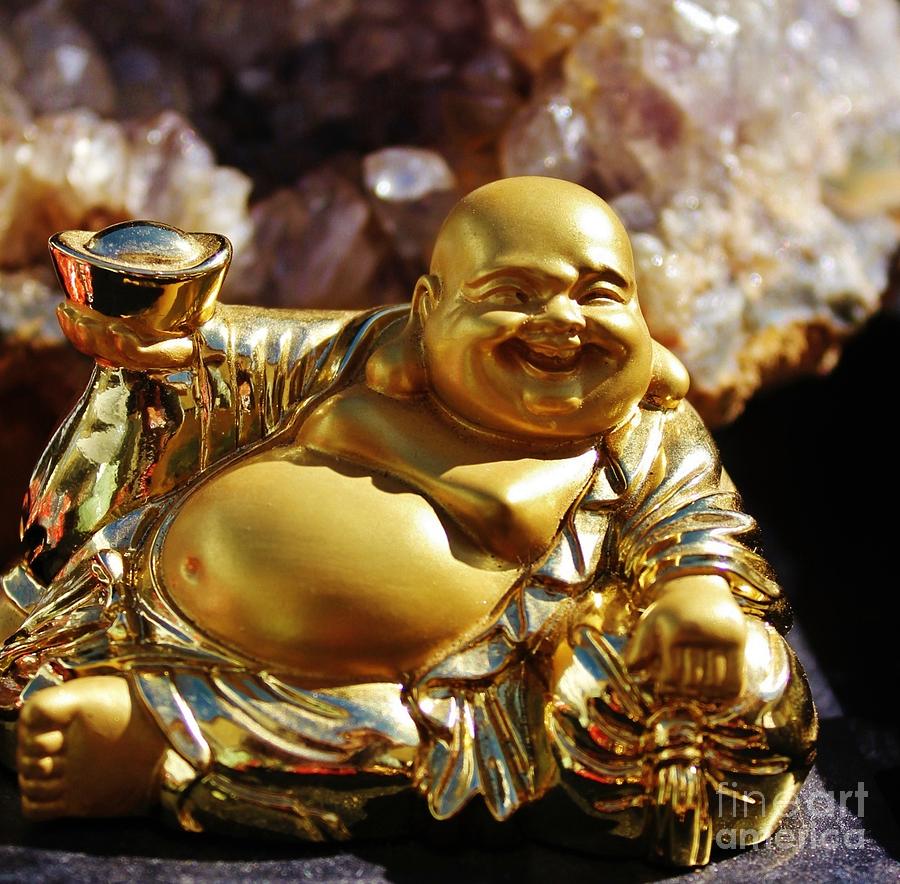
Chinese God of Wealth Photograph by Craig Wood Pixels
赤帝 Chìdì — Red Deity, the Nándì ( 帝 "South Deity") or Nányuèdàdì ( 南岳大帝 "Great Deity of the Southern Peak"): he is Shennong (the "Divine Farmer"), the Yandi ("Fiery Deity"), associated with the essence of fire and summer, and with Mars. His animal form is the Red Dragon and his stellar animal is the phoenix.
Amazing China Antiques Painted Porcelain CaiShen the God of Money
In Chinese mythology, Caishen (財神) is the god of wealth and money. He is honored in both Taoism and Chinese folklore, especially during the Chinese New Year festivities when people are eager to see Caishen bless their coming year with prosperity.

Chinese God of Wealth" ruyiruyi", Circa Early 20 Century Collectors
Every culture loves money, but Chinese love money so much that they even create a money god, "The God of Fortune", and worship him, especially during the Chinese New Year.. To understand the Chinese love of money, we need to understand the survival contexts of mainland China, the epicentre of all Chinese cultures that has had 6000 years.
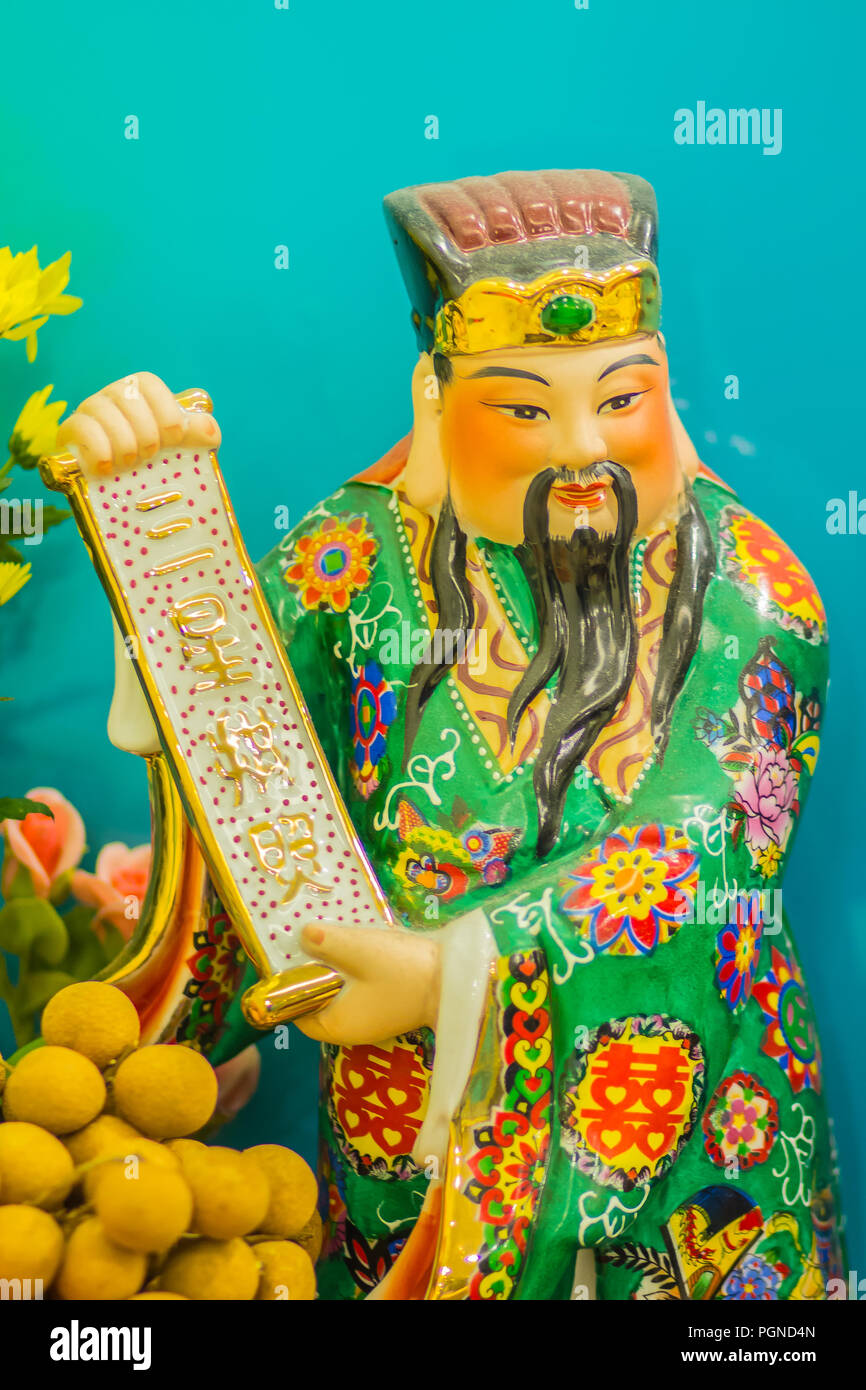
Close up sculpture of Cai Shen, Chinese God of wealth, God of fortune
Caishen's Secrets What Is Chinese God of Money? Caishen's Secrets Posted on 2023-08-04 at 19:19. Written by Ricky Learn About Caishen: China's Ancient God of Prosperity In Chinese Taoism, the God of Wealth oversees global prosperity.
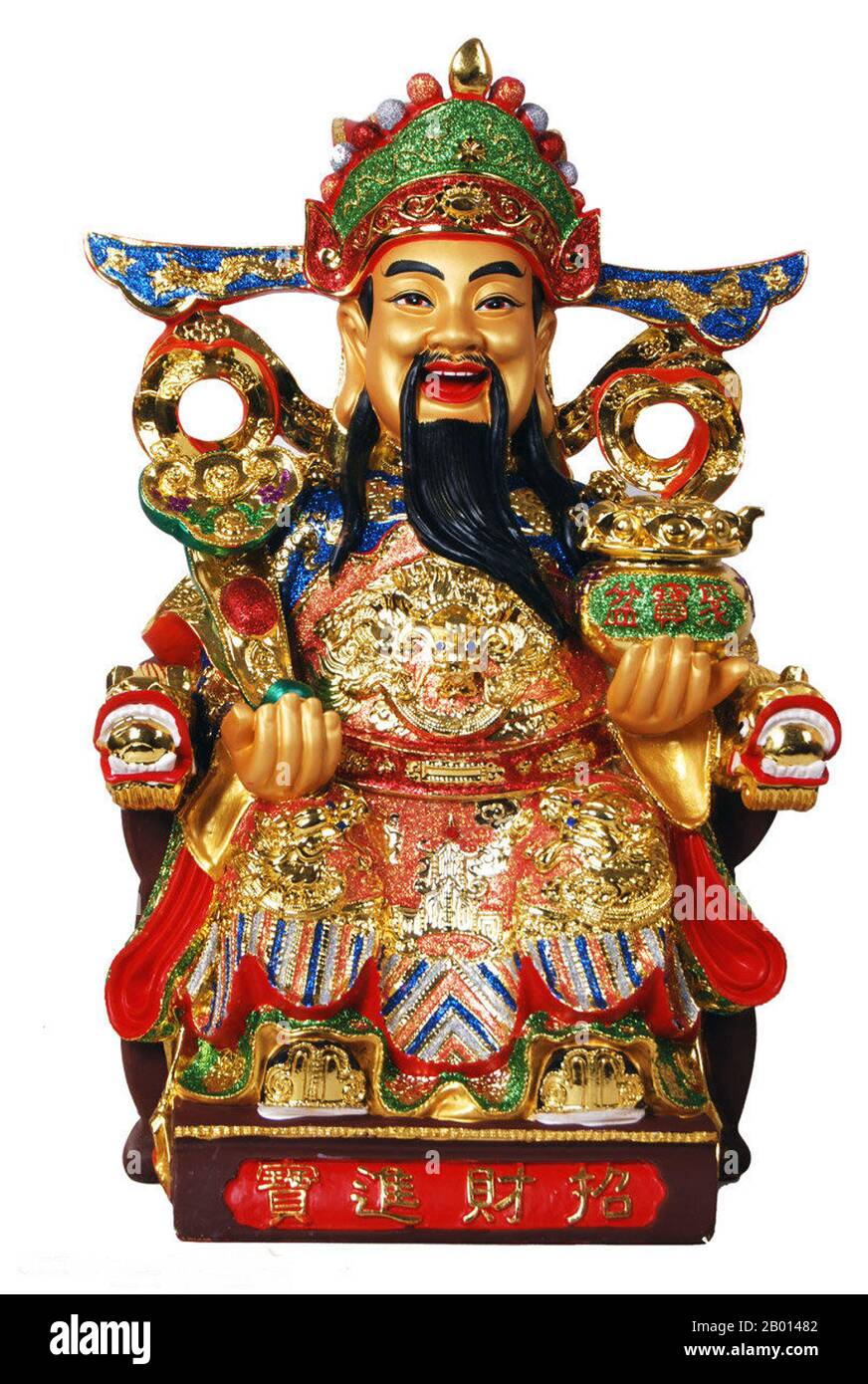
Caishen, the god of wealth statue Cut Out Stock Images & Pictures Alamy
The Jin Chan is usually depicted as a bullfrog with red eyes, flared nostrils and only one hind leg (for a total of three legs), sitting on a pile of traditional Chinese cash, with a coin in its mouth. On its back, it often displays seven diamond spots. According to feng shui beliefs, Jin Chan helps attract and protect wealth, and guards.

Cai Shen, Chinese God of Wealth or God of Fortune Statue Stock Image
Society & Culture All about the Chinese God of Money Chinese Lives is a weekly series that looks at notable figures from all eras of Chinese history. Alex Colville Published May 18, 2020 Read later Credit: The China Project illustration by Derek Zheng

Illustration Of Chinese God Of Wealth caishen Illustration Getty Images
Caishen, in Chinese religion, the popular god (or gods) of wealth, widely believed to bestow on his devotees the riches carried about by his attendants.

Cinese Dio Della Figurina Di Fortuna, Di Prosperità E Di Longevità
Caishen: The Chinese God of Wealth If you've ever wished for prosperity on New Year's Day, you might have been invoking the Chinese god of wealth. Keep reading to find out about the origins of Caishen and why he is so popular in modern celebrations. Mike Greenberg, PhD The Chinese New Year is marked by fireworks, parades, and family gatherings.

God Chinese Cai Shen stock photo. Image of shen, asian 67277216
Caishen God of Wealth is a revered figure in Chinese culture, associated with prosperity and abundance. With various historical incarnations like Zhao Gongming, Fan Li, and Bi Gan, Caishen is worshipped in temples throughout China, particularly during Chinese New Year festivities. Depicted riding a black tiger and holding a golden staff.
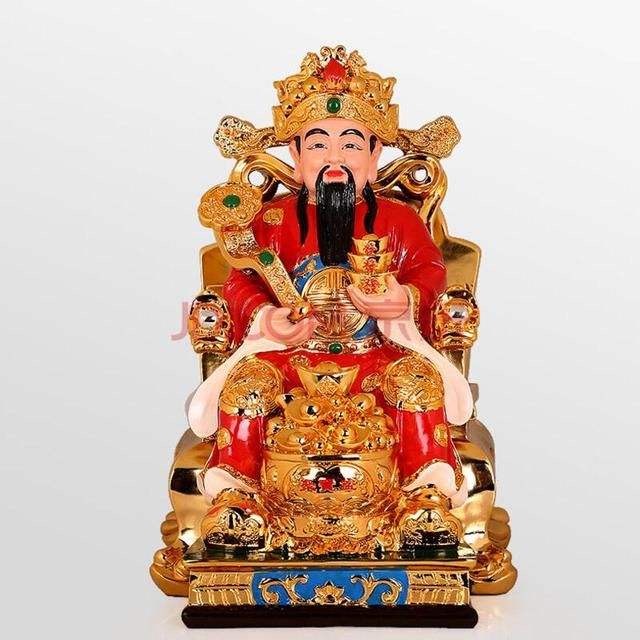
All about the Chinese God of Money Chinese Lives Column The China
US office owners face $117bn wall of debt repayments; Private equity groups hunt for new exit strategies as cash piles up; Business trends, people to watch and risks on the horizon in 2024

14"Chinese Copper Gilt Lucky Ru Yi Yuan Bao Money God of wealth Buddha
Who Is the Chinese God of Money? Caishen, also Cáishén, Ts'ai Shen, or Cai Boxing Jun, is the Chinese god of money and wealth. He is worshipped in China by followers of both Taoism and.

Cai Shen (Chinese "God of Wealth") is the Chinese god of prosperity
Chinese God of Fortune Caishen is known as the god of fortune, god of wealth, and god of prosperity. Another story of how he became a god is found in the novel written during the Ming dynasty, Fengshen Yanyi, the story of how a hermit Zhoa Gongming used magic to bolster the failing Shang Dynasty during the 12 th century BCE.

Statuette Of The Chinese God Of Wealth On Money Stock Photos Image
The 5th lunar day of Chinese New Year is the Welcome Day for the God of Wealth. Many families worship the God of Wealth in the early morning. After the ceremony, people explode firecrackers to invite the God of Wealth to enter the house. That's why we can keep continuously hearing the sparsely sound of firecrackers in the morning.

Cai Shen, Chinese God of Wealth, God of Fortune. Stock Photo Image of
'God of Wealth') is the mythological figure worshipped in the Chinese folk religion and Taoism. He has been identified with many historical figures, viewed as his embodied forms, among whom Zhao Gongming ( 趙公明, Wade-Giles: Chao Kung-ming; also known as Zhao Gong Yuanshuai 趙公元帥 "Lord Zhao the Marshal"), Fan Li, and Bi Gan. [1]
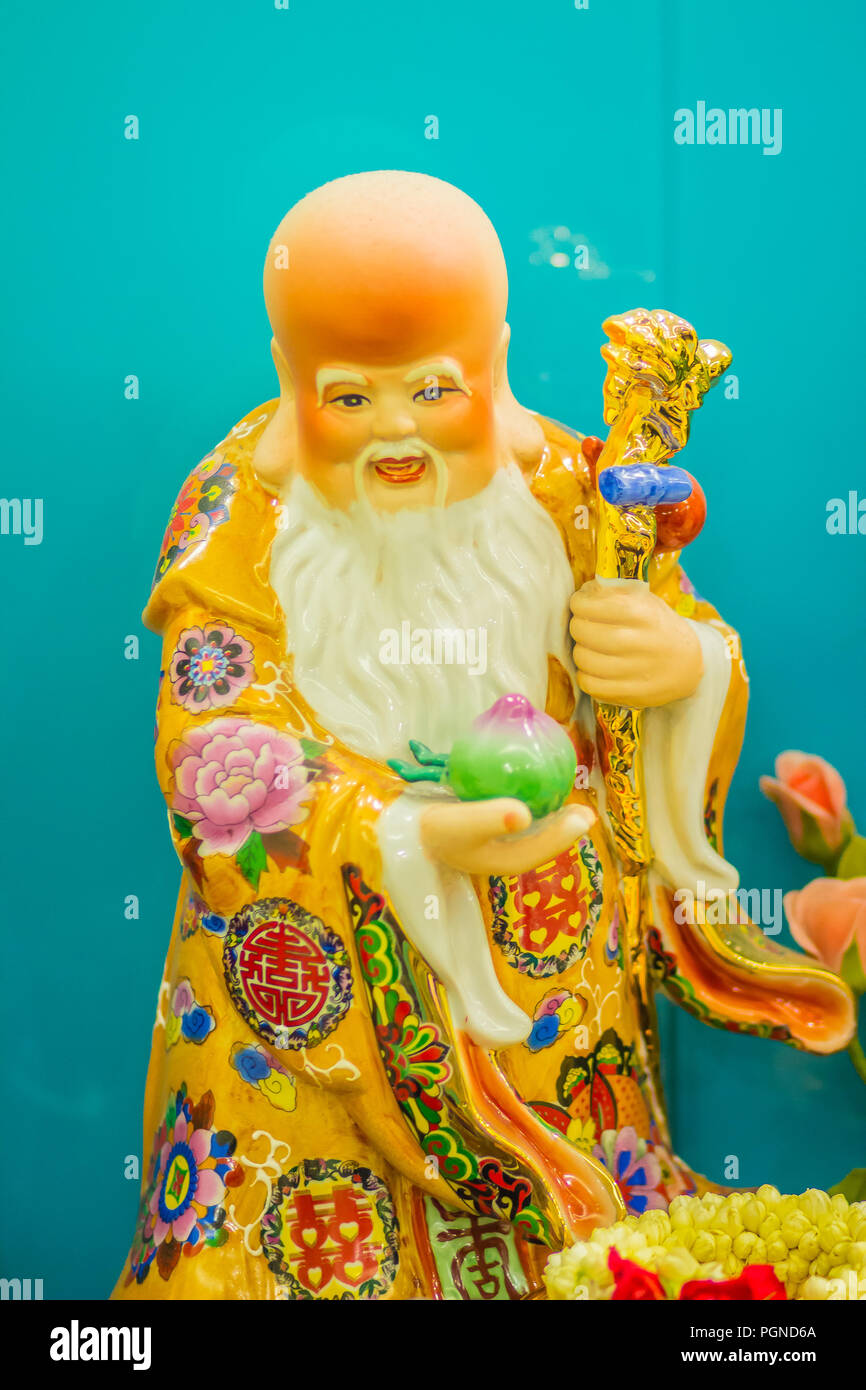
Chinese God Of Fortune
Tsai Shen Yeh or Cai Shen - God of Wealth, (traditional Chinese: 財神; simplified Chinese: 财神; pinyin: Cáishén) is also named Zhao Gongming or Bi Gan. The God of Wealth presides over a vast bureaucracy with many minor deities under his authority. A majestic figure robed in exquisite silks often he is pictured riding a black tiger, a.

Statuette of the Chinese God of Wealth on Money Stock Image Image of
The God of Money ( caishen 財神) is one of the most popular deities in Chinese folk religion. He is identified with a semi-historical person called Zhao Gongming 趙公明, who is also called "Marshal Zhao Gong" 趙公元帥, or "Zhao of the Mysterious Altar" Zhao Xuantan 趙玄壇. This person was only identified as the God of Money from the Tang period 唐 (618-907) on.